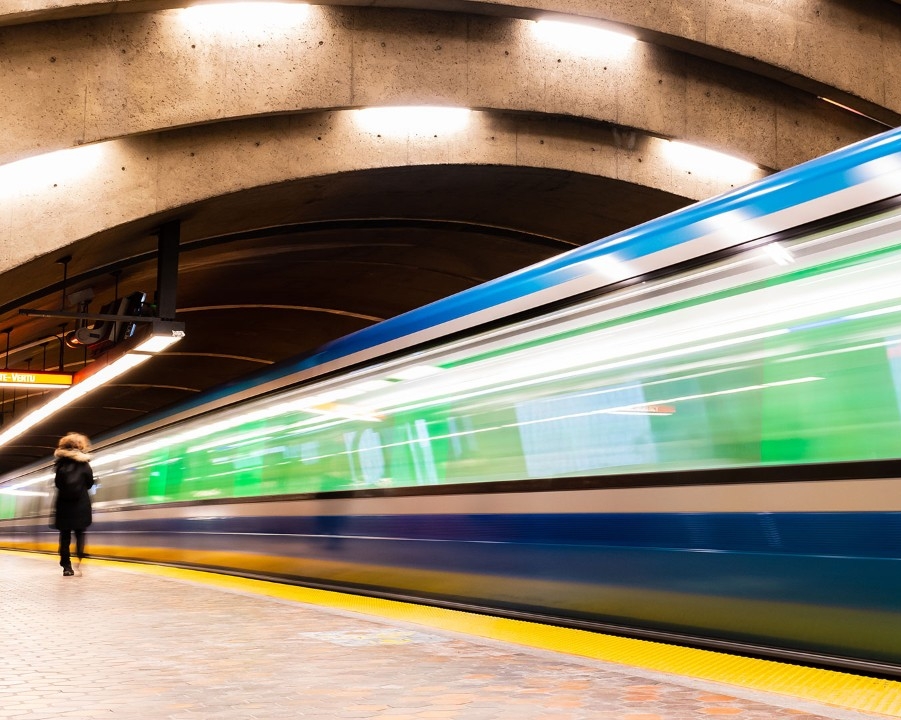article
From Taipei to Montreal: Ideas that can transform our city
This article was originally published in The Gazette.
Montrealers know frustration by heart: a métro stalled between stations; a hospital queue that stretches late into the night; a complaint submitted to a public office, never acknowledged. Orange cones linger for months, and AI researchers worry a chip delay could halt their work. These bottlenecks sap productivity and erode public trust.
Taiwan shows none of this is inevitable. As part of the 2025 Mosaic Taiwan Fellowship, organized by Taiwan’s Ministry of Foreign Affairs, we spent two weeks immersed in Taiwan’s society and policy landscape. We joined 30 other Canadian and American participants for site visits, lectures and conversations with public officials, entrepreneurs and community builders. We saw how Taiwan’s public services blend efficient infrastructure with thoughtful, user-centred design.
These weren’t theories. They were working systems. On time, on budget and built with care.
Let’s start with the chips. Montreal’s tech ecosystem runs on silicon: Mila’s AI breakthroughs, CAE’s flight simulators, university photonics and quantum labs. Today, roughly 90 per cent of the world’s most advanced chips are fabricated in Taiwan. That makes our research economy vulnerable. Luckily, Bromont already hosts Canada’s largest micro-electronics hub. Quebec should leverage that strength by attracting a mid-size Taiwanese design studio or packaging facility and launching a joint research chair on resilient supply chains. A strategic investment in long-term economic security.
Taiwan’s health care system offers another clear model. While Quebec’s RAMQ card has limited functionality, Taiwan’s National Health Insurance card stores a patient’s recent prescriptions, visit summaries and insurance status in a secure chip. It settles claims instantly and links to a national electronic records system. The result? Shorter outpatient wait times, direct access to specialists, and a system that costs about half as much — roughly six per cent of GDP. As Quebec upgrades its digital infrastructure, a smart health card could cut paperwork, reduce errors, and deliver more dignity for patients and providers.
And then there’s the métro. In Taipei’s transit system, platform screen doors prevent accidents and keep trains moving. Painted “politeness lines” cue riders into quiet, orderly queues. Lights show where the doors will open; priority seats are respected.The effect is tangible: calm platforms, silent cars and a culture of respect.
Montreal’s REM shows platform doors work here too, yet the STM’s Blue Line extension is being planned without them. Quebec should mandate barriers on all new builds and launch pilot campaigns with decals and courtesy messaging at stations like Berri-UQAM. This kind of design shapes how we move. Courtesy is engineered, not wished for.
Taiwan also models new ways of listening to citizens. Through platforms like vTaiwan and Join, people can propose policies and collaborate on decisions, from Uber regulations to mask distribution. It’s fast, transparent, and builds trust. Montreal’s civic tech sector is growing, but often disconnected from public decision-making. A public innovation unit could test digital engagement tools and close that gap.

Even construction felt different in Taiwan. Work sites were organized, timelines posted, detours sensible. Métro extensions advanced with visible co-ordination between utilities, transit agencies and contractors. In Quebec, the opposite often feels true.Requiring integrated project delivery models and publishing real-time dashboards would help projects move faster, building public trust.
Taiwan’s population may be smaller than Canada’s, but its innovations in civic design and delivery are ready to be adapted, scaled and implemented in Montreal. With more provincial budgets to come, and the continuing expansion of the REM, our leaders have a chance to act.
Mandating platform doors, piloting a digital health card, anchoring a chip partnership, testing digital engagement, and requiring smarter construction tools aren’t moonshots. They’re practical, proven steps aligned with global best practices.
Montreal has the expertise and appetite for change. It just needs the policy to catch up. We saw what’s possible in Taiwan. Why not in Montreal?
Michael Lecchino is a marketing student at Concordia’s John Molson School of Business and president of the Conseil jeunesse de LaSalle. Nicolas Bastien-Carignan studies political science at Université du Québec à Montréal. Patrick Girard is a master’s candidate in public and international affairs at Université de Montréal.

